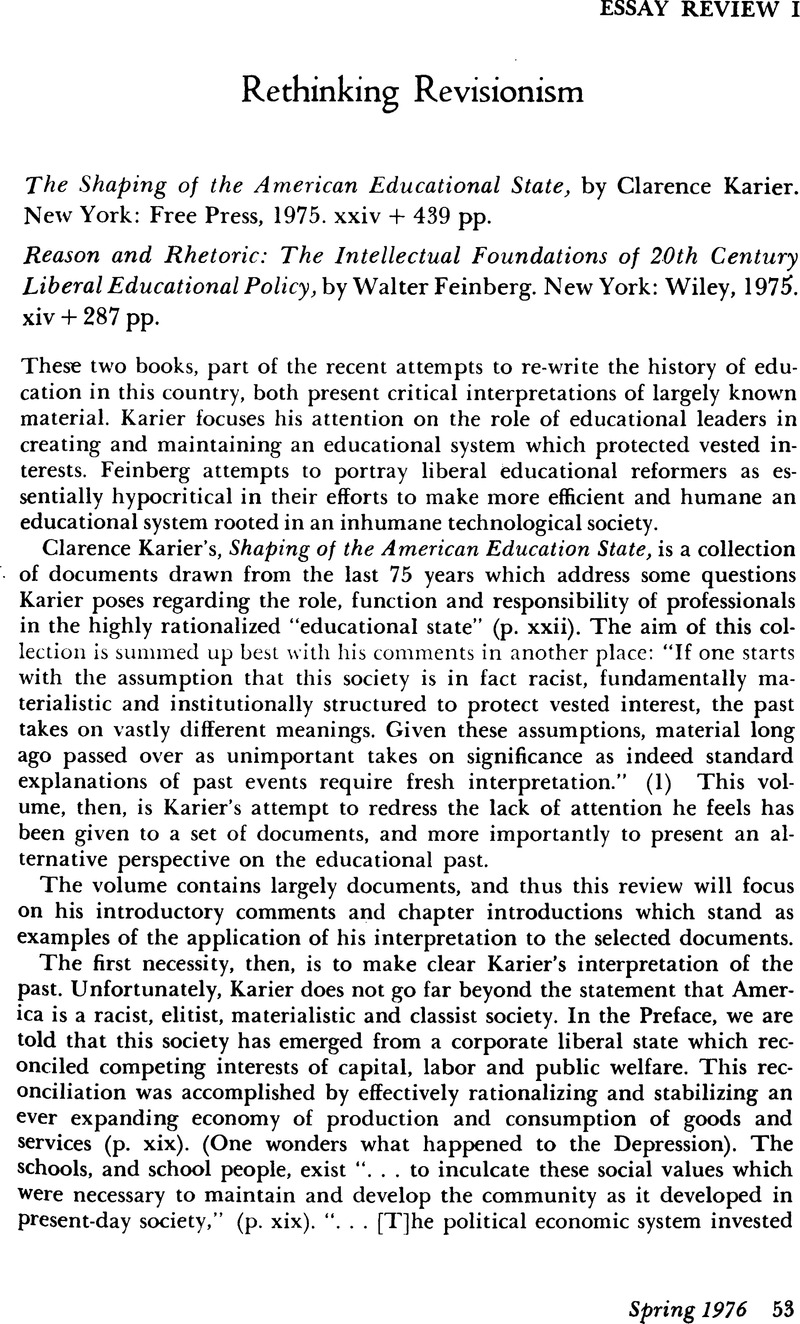No CrossRef data available.
Published online by Cambridge University Press: 24 February 2017

1. Karier, Clarence J., “American Educational History: A Perspective,” The Eduactional Forum, 37 (March, 1973): 296.Google Scholar
2. One of the best discussions of the theoretical issues involved here is Demerath, N. J. and Peterson, Richard A., Eds.; System, Change and Conflict: A Reader In Contemporary Sociological Theory and The Debate On Functionalism (New York, 1967).Google Scholar
3. The problems of “radical functionalism” were brought to my attention in another context by Berenice Fisher.Google Scholar
4. Swift, David, Ideology and Change in the Public Schools (Columbus, Ohio, 1971).Google Scholar
5. Collins, Randall, “Functional and Conflict Theories of Educational Stratification,” American Sociological Review, 36 (1971): 1002–1019; Jencks, Christopher, et. al., Inequality, (New York, 1972); also see Berg, Ivar, Education and Jobs: The Great Training Robbery (Boston, 1971).CrossRefGoogle Scholar
6. See his essays in, Karier, Clarence J., Violas, Paul and Spring, Joel, Roots of Crisis: American Education in The Twentieth Century (Chicago, 1973).Google Scholar
7. For a critical examination of Feinberg's discussion of the Polish study, see Zerby, Charles L. “John Dewey and the Polish Question: A Response to the Revisionist Historians,” History of Education Quarterly, 15 (Spring 1975): 17–30.CrossRefGoogle Scholar
8. Weibe, Robert, The Search for Order: 1877–1920 (New York, 1967); Lasch, Christopher, The New Radicalism in America: 1889–1963 (New York, 1965); Karier, Clarence J., Violas, Paul and Spring, Joel, Roots.Google Scholar
9. Ellul, Jacques, The Technological Society (New York, 1964).Google Scholar
10. Zerby, , “Polish Question.”Google Scholar
11. For other efforts to address the problems of liberalism, see Forcey, Charles, The Crossroads of Liberalism (New York, 1961); Purcell, Edward A. Jr., The Crisis of Democratic Theory (Lexington, Ky., 1973). Also relevant to Feinberg's study is Merle Curti The Social Ideas of American Educators (New York, 1935).Google Scholar